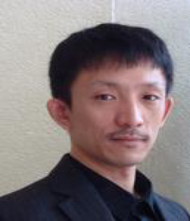讲座嘉宾:Prof. Yang Yang(美国University of Central Florida)
讲座主持:林展教授
讲座时间:2017年12月20日(周三)15:00-16:00
讲座地点:工学四号馆202
讲座主题:Electrochemical fabricationof nanostructured thin-filmforrenewable energy applications
主讲人简介:

Dr. Yang Yang obtained his Ph.D. from Tsinghua University in 2010. From 2010 to 2012, he was supported by the Alexander von Humboldt Postdoctoral Fellowship and worked with Prof. Dr. Patrik Schmuki at the University of Erlangen–Nuremberg. From 2012 to 2015, he was supported by the Peter M. & Ruth L. Nicholas Postdoctoral Fellowship and worked with Prof. Dr. James M. Tour at Rice University. Since 2015, he has been assistant professor at the University of Central Florida. His current research interests cover nanostructured films, renewable energy generation and storage, and flexible electronics. He has published more than 70 peer-reviewed journal articles, including Journal of the American Chemical Society, ACS Nano, Nano Letters, Advanced Materials, Advanced Functional Materials, Advanced Energy Materials, Angewandte Chemie International Edition and so forth.
个人主页:http://www.yangyanglab.com.
报告简介:
Freestanding and robust thin-film electrodes are the basis for future renewable energy technology owing to their unique merits: i) additive-free features enable facile fabrication route and long lifetime; ii) can be easily recycled; iii) significant reduce the weight and volume of the energy devices, especially for batteries and supercapacitors; iv) can be integrated into wearable electronic systems. However, previous efforts fail to make significant progress in freestanding metal compound thin-films due to a lack of fundamental understanding and technical breakthrough in freestanding metal compound thin-films. In this work, transformative thin-film nanomanufacturing technology has been developed to fabricate freestanding metal compound thin-films using a facile and scalable electrochemical route. Both experimental and computational studies indicate that a supreme electrochemical performance can be achieved by tuning the microstructure and composition of thin-films. Outstanding energy storage and hydrogen generation properties are therefore obtained by directly using these advanced thin-films as electrodes.